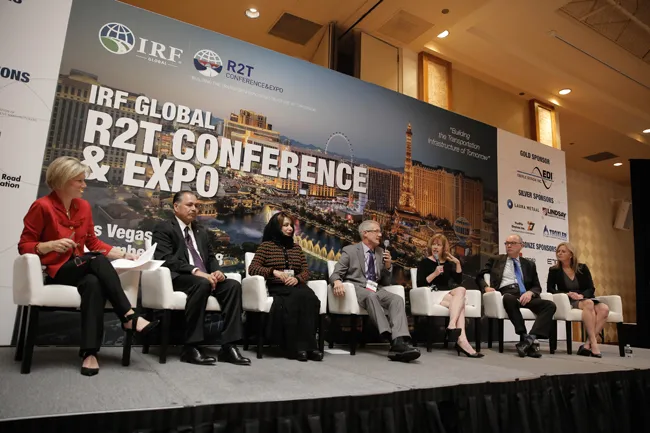The American Transportation Research Institute (ATRI) and the Federal Highway Administration (FHWA) has released the findings of their annual report on congestion at freight significant highway locations.
April 30, 2012
Read time: 2 mins
The 5339 American Transportation Research Institute (ATRI) and the 2410 Federal Highway Administration (FHWA) has released the findings of their annual report on congestion at freight significant highway locations. The research assesses the level of truck-oriented congestion at 250 locations on the national highway system to produce a congestion severity ranking for each location. This ongoing research, which is part of the Freight Performance Measures (FPM) initiative, is sponsored by FHWA's Office of Freight Management and Operations and operated by ATRI.
The FPM congestion monitoring effort combines anonymous truck GPS location information with sophisticated software applications and analysis techniques to assess the levels at which truck-based freight was affected by traffic congestion in 2010. The result is a clear documentation of system chokepoints, especially during peak travel times in urban locations.
"The impact of traffic congestion on truck travel is well known, but rarely in a fashion where we can pinpoint projects for resource allocation and reconstruction," said Keith Bucklew, manager of Multimodal Planning for the Indiana DOT. "The FPM programme continues to provide real value to public sector transportation managers."
Kevin Knight, chairman and CEO of Knight Transportation, commented, "Strengthening the efficiency of supply chains is becoming a critical component of U.S. economic growth. Challenge number one is identifying the freight bottlenecks. Fortunately, ATRI's report goes far in using real-world data to tell us where the impediments lie."
The FPM congestion monitoring effort combines anonymous truck GPS location information with sophisticated software applications and analysis techniques to assess the levels at which truck-based freight was affected by traffic congestion in 2010. The result is a clear documentation of system chokepoints, especially during peak travel times in urban locations.
"The impact of traffic congestion on truck travel is well known, but rarely in a fashion where we can pinpoint projects for resource allocation and reconstruction," said Keith Bucklew, manager of Multimodal Planning for the Indiana DOT. "The FPM programme continues to provide real value to public sector transportation managers."
Kevin Knight, chairman and CEO of Knight Transportation, commented, "Strengthening the efficiency of supply chains is becoming a critical component of U.S. economic growth. Challenge number one is identifying the freight bottlenecks. Fortunately, ATRI's report goes far in using real-world data to tell us where the impediments lie."







